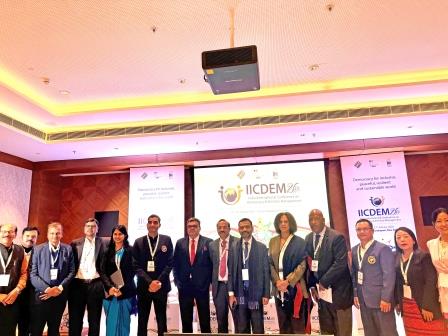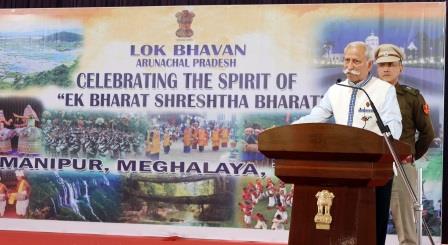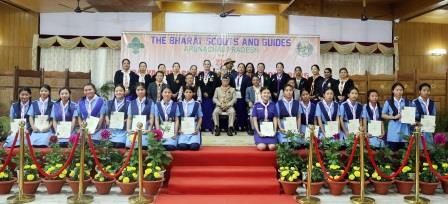-
 Team Arunachal Pradesh participates in IICDEM 2026; leads thematic…
Team Arunachal Pradesh participates in IICDEM 2026; leads thematic…
-
24hr bandh hits normal life in Lower Subansiri
-
 Lok Bhavan celebrates State Foundation Day
Lok Bhavan celebrates State Foundation Day
-
 Arunachal Yuva Samanvay 2026 underway in Namsai
Arunachal Yuva Samanvay 2026 underway in Namsai
-
DA conducts Keyi Panyor Suvidha outreach campaign
-
 Governor confers BSG Rajya Puraskar
Governor confers BSG Rajya Puraskar
-
Pongte stresses use of technology in law-making
-
 Vintage Jeep & Bike Rally commemorates end of World War-II
Vintage Jeep & Bike Rally commemorates end of World War-II
-
ARC partners with AITF, apex CBOs to lead strategic dialogue
-
Dibang Valley administration reviews progress of ongoing schemes
Solid waste management has emerged as a major problem for urban India and it is becoming increasingly tough for urban local bodies to meet the challenge. The worry exist in equal measure in Arunachal especially the Itanagar Capital Region.
377+ million urban people living in nearly 8000 towns and cities generate 62 million tonnes of municipal solid waste annually of which only 43 million tonnes (MT) are collected, 11.9 MT treated and 31 MT dumped in landfill sites. And with a population growing in a pattern destined to overtake China soon, coupled with growing and changing consumption patterns and rapid economic growth, it is estimated that urban municipal solid waste generation will touch 165 MT in 2030. This is apart from the ever increasing e-waste production, a comparatively new entrant where the contributors are computers, screens, smartphones, tablets & TVs, household appliances and heating & cooling equipments. This is where we stand and since urbanization, industrialization and economic growth can’t be sacrificed, the solution lies only in professionally managing this predicament.
Waste management rules which are in force in the country, like in most other nations confronting the same problems, are based on the principles of ‘sustainable development’, ‘precaution’ and ‘polluter pays’. The core aims of this entire gamut of principles are to mandate all the stakeholders to act in an environmentally accountable and responsible manner and restore balance, if there are disrupts due to their actions.
But in spite of serious efforts, desired results are yet to see the light of the day and that can be attributed to the lack of awareness among a good portion of the urban dwellers. There have been repeated requests by the civic bodies to discard wastes according to their nature in bins separately earmarked, dispose household wastes in municipal vans and many such. But the ‘don’t care’ attitude seems deeply ingrained. Thus there is a need for training and capacity building at every level, particularly in schools where children should be made aware of the importance of waste management to raise them into responsible citizens of tomorrow. There must also be a shift in vision by considering wastes as resources with technology aided value extraction, recycling and reuse, rather than as a hazard only.
And since there are multiple stakeholders contributing to this menace, a concerted move will be required to end this. Without a combined effort essentially including a responsible citizenry, more stringent laws and latest technology, managing wastes will continue to remain a solid challenge.

Kenter Joya Riba
(Managing Editor)She is a graduate in Science with post graduation in Sociology from University of Pune. She has been in the media industry for nearly a decade. Before turning to print business, she has been associated with radio and television.
Email: kenterjoyaz@easternsentinel.in / editoreasternsentinel@gmail.com
Phone: 0360-2212313

